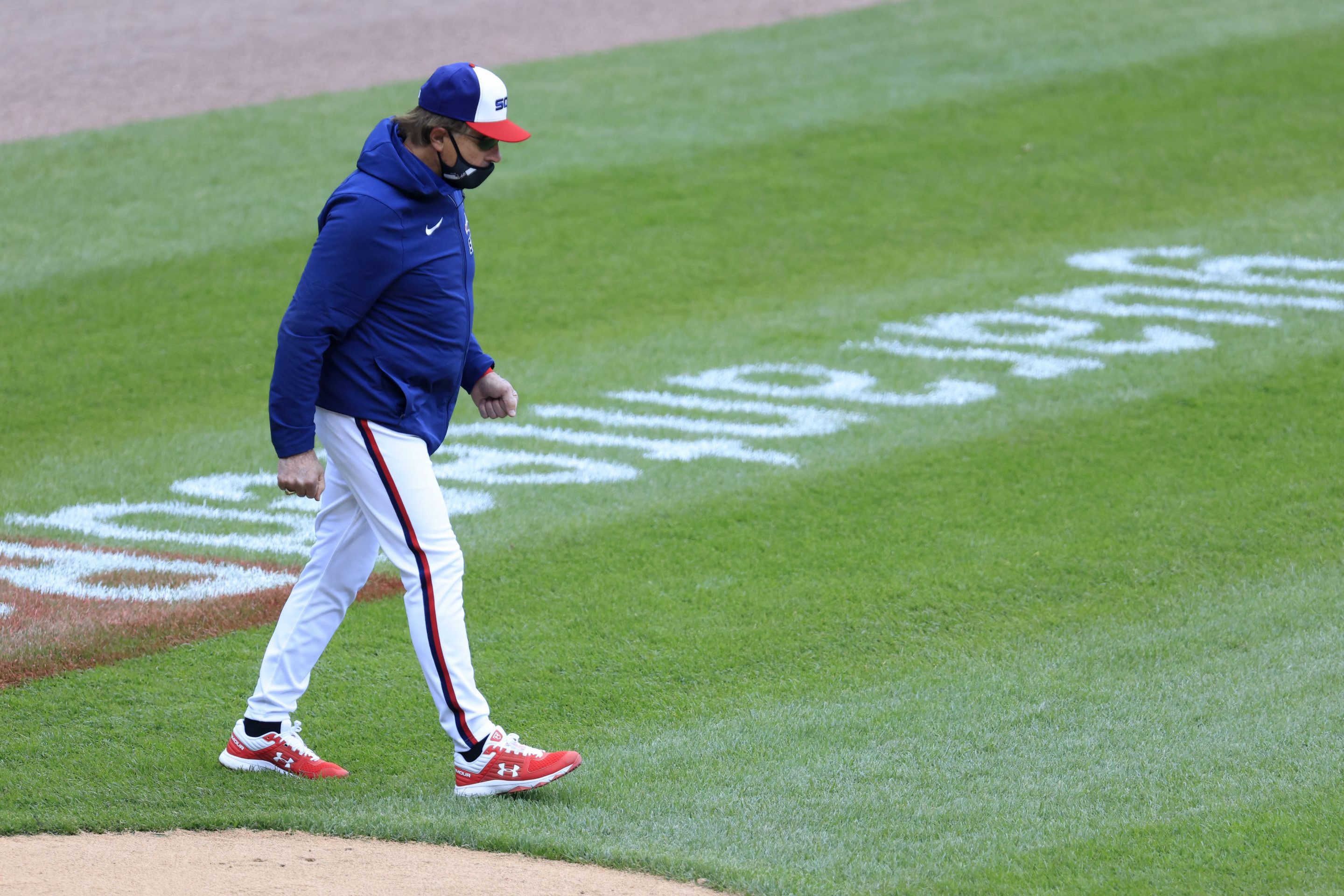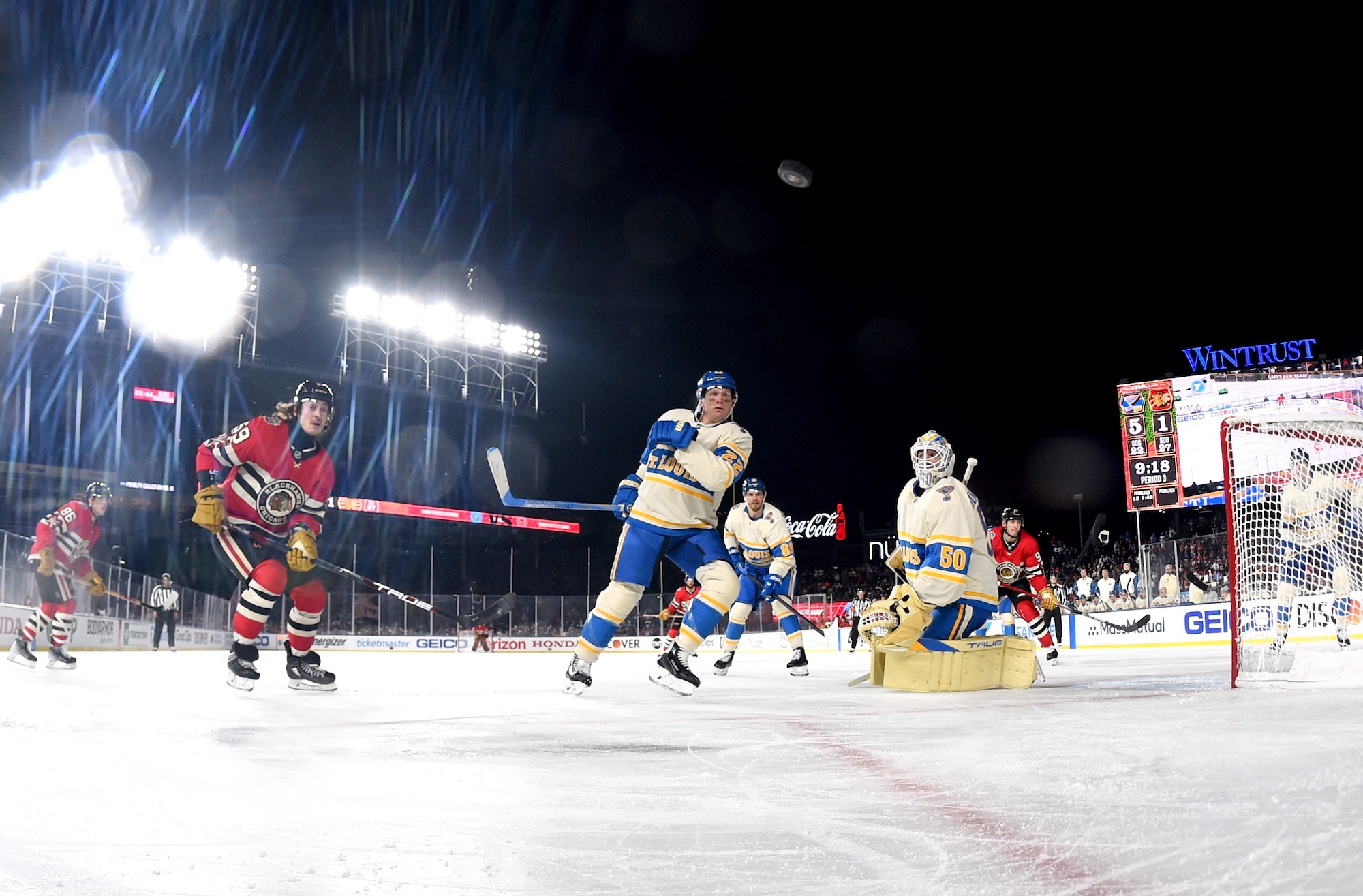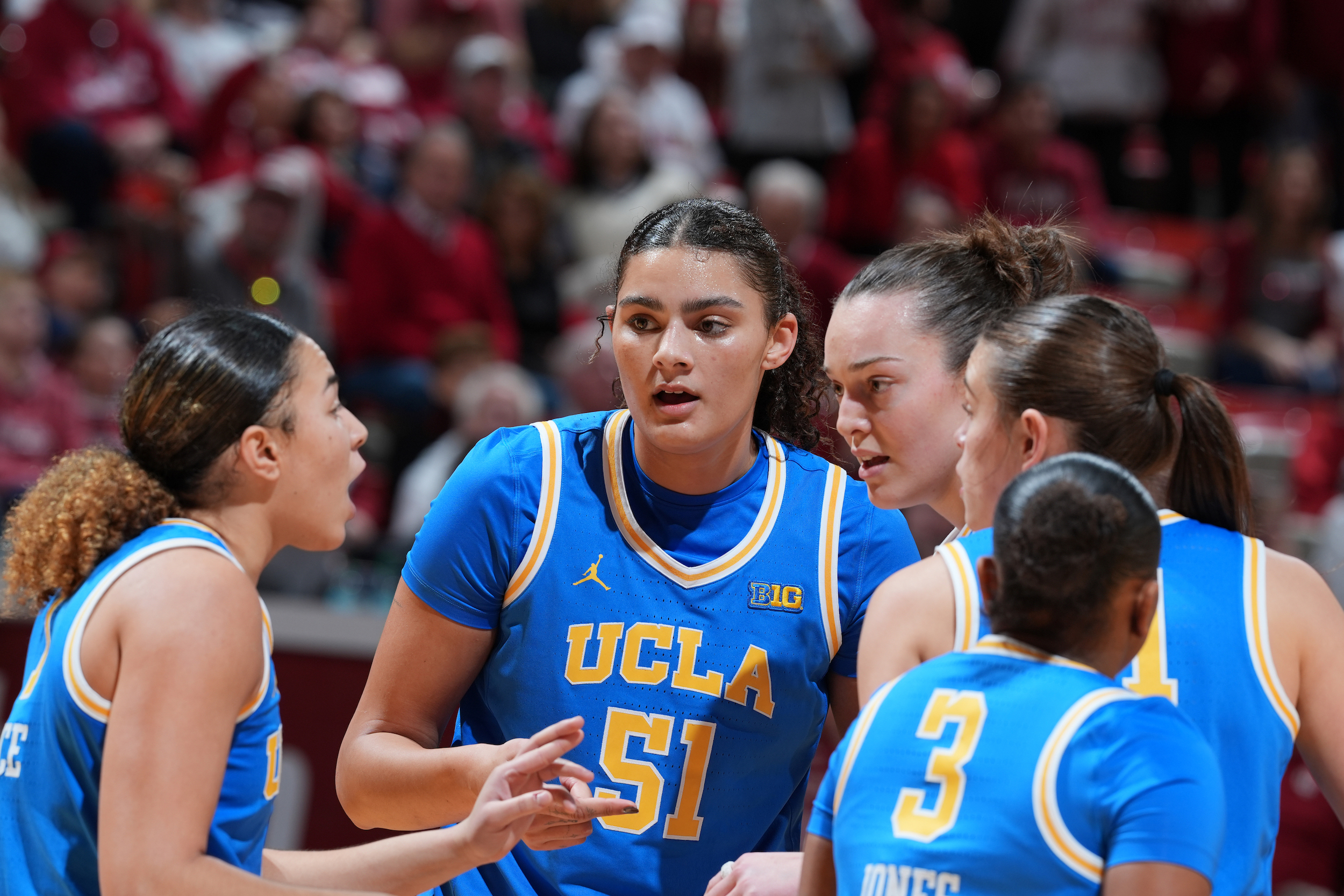It is tough to think of a more overtly insignificant baseball moment than the one that brought Yermin Mercedes and Willians Astudillo together on Monday night. The two all-beef parties in this particular matchup alone tell you as much—a bat-first backup catcher on the mound against a bat-only former backup catcher, in May, in a game in which 11 runs separated their two teams. The White Sox, as they have more than any other team in the American League this year, were winning; the Twins had turned things over to their chaotic toadstool-shaped utility goofball secure in the knowledge that his sub-50-mph eephii would and indeed could not be hit any harder than the more aesthetically big league offerings from their hideous bullpen already had been. After missing the zone three times in the top of the ninth, Astudillo's fourth pitch was brusquely helped into orbit by a vigorous Mercedes cut. This made the score 16-4. The game ended like that, and then the rest of all this started.
It is worth noting that none of this, or none of it beyond the Lite Kaiju aesthetics of an at-bat pairing people shaped like Astudillo and Mercedes, remotely cries out to be remembered. There is much more baseball to be played and because almost all of it will look better and feel more urgent than this. It was a fun highlight, and had White Sox manager Tony La Russa not decided to make it into some kind of curdled teachable moment in defense of baseball's unwritten rules, it would have lived the same life that other fun highlights do, which in my experience is mostly "playing as a looping GIF in my brain when I wake up in the middle of the night, years from now."
None of what has happened since—Twins reliever Tyler Duffey pointedly throwing a pitch behind Mercedes on Tuesday, La Russa blearily asserting that he didn't have a problem with his own player getting targeted, and all the ejections and discourse that followed—had to happen. Had La Russa not prioritized the unwritten rule against swinging in a 3-0 count in a blowout over the (at least equally esteemed) unwritten rule against airing clubhouse business in the press, or the (cardinal) unwritten rule of a manager taking his player's side, this post would not exist. Had Mercedes seen or followed the take sign he ostensibly got from the dugout on that play, we would not even have had the highlight to enjoy; we would have had only the Pure Baseball experience of a guy taking a four-pitch walk in a game his team was winning by 11 runs, and silence. As White Sox starter Lance Lynn observed, this could all also have been avoided if everyone just calmed down a little bit. "If a position player is on the mound, there are no rules," Lynn said Tuesday night. "Let's get the damn game over with. And if you have a problem with whatever happened, then put a pitcher out there." That didn't happen, either.
If this was not the first time that Tony La Russa has screwed something up this season—and, in a season in which his White Sox have been one of the best teams in baseball despite some devastating early injuries, it absolutely is not—it was the first time that he screwed up in the way that his more ardent skeptics had expected him to screw up. The managerial mistakes that have already cost La Russa's team wins this season have all reflected either an understandably dated (or, less generously, checked-out) approach on his part or, more damningly, a basic and embarrassing unfamiliarity with the game's new rules among him and his staff of hand-picked buddies. All that stuff—sticking with a pitcher too long, botching a new extra-inning rule—was just standard off-the-rack incompetence.
It is too early in the season to say whether La Russa will learn anything from those experiences or this one, although if the White Sox keep winning, that will certainly be how the story gets told. But with the White Sox continuing to roll—Lucas Giolito held the Twins to two hits over eight innings on Wednesday afternoon, and the Sox improved to 26-16—it's worth considering the possibility that it might not matter at all what or whether La Russa learns from this. La Russa himself seems secure in the belief that calling one of his best players "clueless" and shrugging off an opponent trying to drill him is just One Of Those Things That Happens without considering why and how it came to happen to him. "I was walking around the clubhouse last night, the day before, after the game," he told reporters on Wednesday, "and no one was giving me the Heisman."
And, again, in terms of its impact on the team's success on the field and what appears to be a very happy and united clubhouse, it is tough to say that any of that really has mattered much. This is good for the team, but also kind of a nice way of saying that the manager himself seems almost incidental to that success. What has gone right for the White Sox this year is mostly what was beginning to go right for them last year—pitching coach Ethan Katz has worked wonders first with Giolito and then Carlos Rodon and Dylan Cease, both of whom have looked pretty robustly busted at various points in the last few years, and both of whom have pitched like All-Stars so far. The team's young hitters have also almost all hit, with Luis Robert and Eloy Jimenez becoming stars before getting hurt, former third-overall pick Andrew Vaughn looking rather shockingly like a big leaguer for someone who has never previously played above A-ball, and Nick Madrigal daily expanding the conception of how valuable a player can be with a slugging percentage in the mid-.300s. Mercedes, who is getting his first big-league playing time at age 28, had hit at every level across two organizations for nearly a decade before finally cracking the lineup and erupting into something like stardom over the season's first months. That Mercedes was in the lineup as a result of the team's bad injury luck and lack of depth is indisputable; so, too, is the fact that La Russa put him in there.
The question of whether this is all merely happening near Tony La Russa while he mutters to himself in the dugout or because of him isn't an easy one to answer. But it's also kind of academic, and much less interesting than watching those things as they continue to happen. What seems most significant about La Russa's tenure thus far is not how well or how poorly he's done, or even the meandering Bidenesque dilation of how he explains himself—since the initial criticism of Mercedes, La Russa has made clear that he did not want to "spank [Mercedes], because he’s too big and strong" and interrupted his own soliloquy on respecting the game and opponents and tradition by suggesting that maybe when another team put a position player in to pitch, the nice move would be to "send three pitchers up there, just stand there and tap the ball someplace." The striking part is how vestigial La Russa seems to all of it.
Yeah yeah brotha🧨🧨
— yermin mercedes (@ymercedes73) May 19, 2021
The idea of a team tuning out its manager entirely certainly sounds bad, and it is by now a familiar part of the postmortem stories that get written about underachieving or otherwise doomed teams. But while a manager can certainly influence games by screwing up important managerial decision-making stuff, which La Russa has already done, it seems clear by now that the White Sox don't really need whatever broader lessons La Russa will, pompously and seemingly by reflex, try to impart. They seem to be doing just fine on their own. "Lance has a locker and I have an office," La Russa said after Lynn publicly contradicted his manager's stance on the primacy of the game's unwritten rules. As high-handed executive kiss-offs go, it's not bad—a little spicy, a little salty, nicely economical in its expression. It is so well-turned, in fact, that it is easy to miss how much it sounds like something that someone who is outnumbered might say, to himself, while business continues as usual outside his office door.





